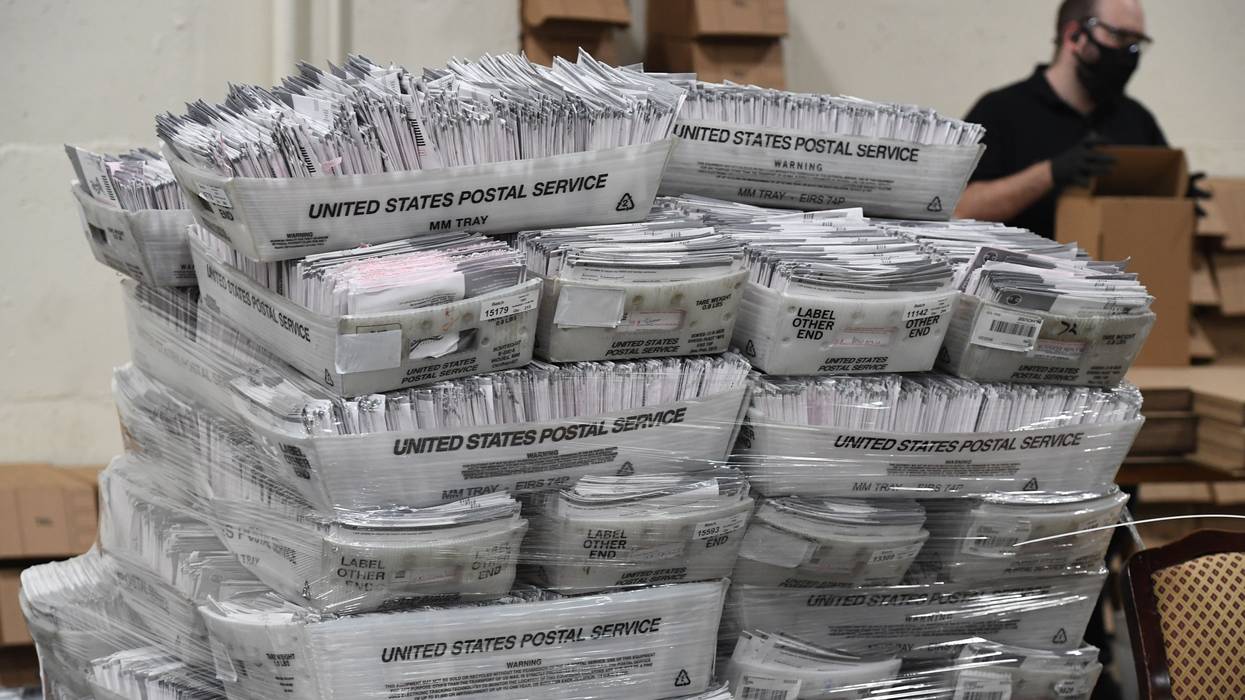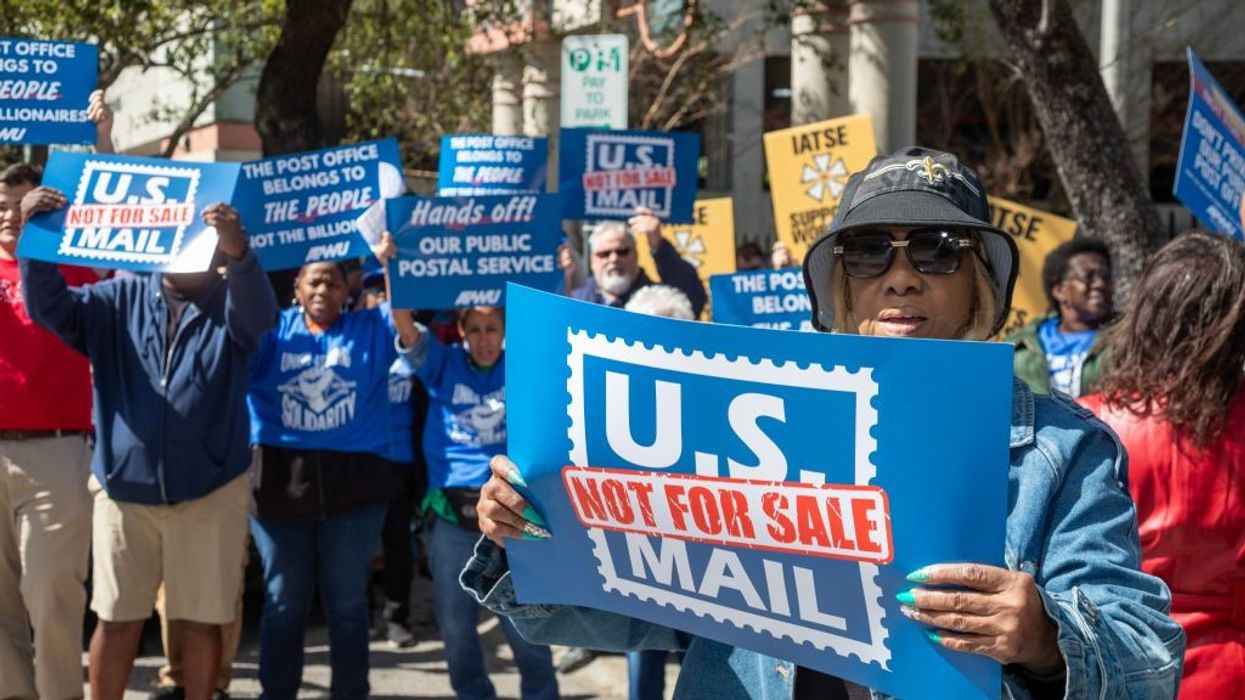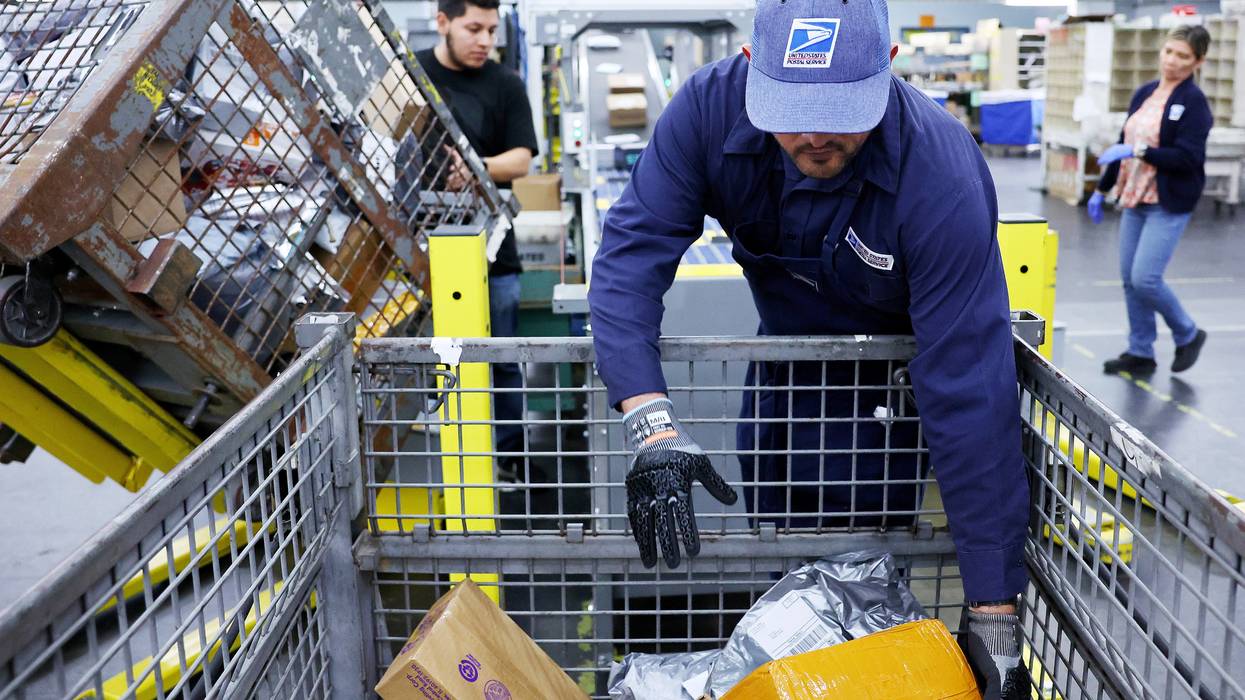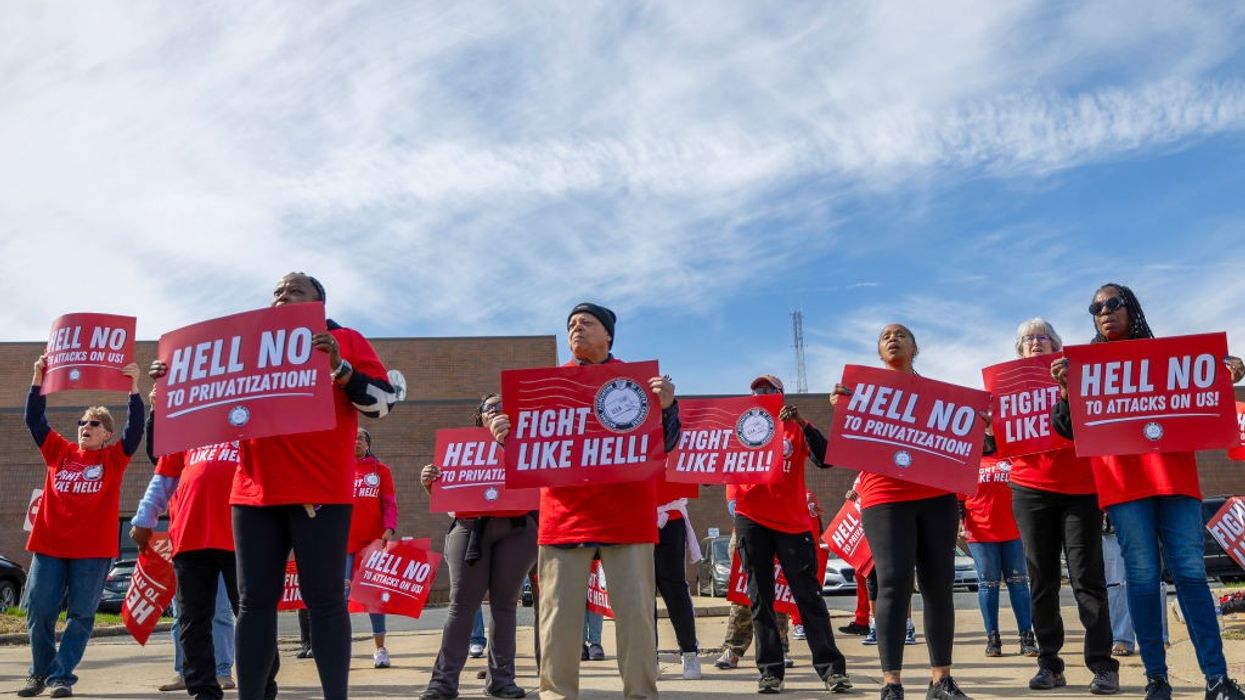The Postmark Plot: The Latest GOP Strategy to Suppress Your Vote
Under a new Trump rule, instead of postmarking letters when they’re received, Post Offices will now postmark them when they get “processed,” which may happen days later, potentially impacting millions of mail-in ballots.
It’s not just a brand new year; it’s a midterm election year. And the stakes this coming November are mind-boggling, so, of course, Republicans are starting to do everything they can to rig the election.
Just a week ago, for example, President Donald Trump’s Postal Service changed the rules about getting your mail-in ballot postmarked so it’ll be counted. Instead of postmarking letters when they’re received, Post Offices will now postmark them when they get “processed,” which may happen days later.
In the 2024 presidential election, the feds estimated that around 104,000 mail-in ballots nationwide weren’t counted because they were postmarked late; with this change, the number this fall and for 2028 could be in the millions.
Meanwhile, Republican secretaries of state are enthusiastically purging voters from the rolls as they get ready for this fall. Remember, reporter and economist Greg Palast found, using official federal and state numbers, that in 2024:
Trump lost. That is, if all legal voters were allowed to vote, if all legal ballots were counted, Trump would have lost the states of Wisconsin, Michigan, Pennsylvania, and Georgia. Vice-President Kamala Harris would have won the presidency with 286 electoral votes.
And, if not for the mass purge of voters of color, if not for the mass disqualification of provisional and mail-in ballots, if not for the new mass “vigilante” challenges in swing states, Harris would have gained at least another 3,565,000 votes, topping Trump’s official popular vote tally by 1.2 million.
You’d think we each have a right to vote, rather than voting being just a privilege that Republican-controlled states could take away in dozens of different ways.
Republicans on the Supreme Court ruled, for example, that we have a right to own a gun. As a result, before a state or local government can take away your gun, they must first go before a judge to prove the necessity of doing so.
But, Republicans on the court tell us, Republican secretaries of state can eliminate your right to vote without even telling you; how does that make sense?
After all, the 14th Amendment to the Constitution references “the right to vote at any election” and even says that any state that violates that right shall lose members of its congressional delegation as punishment.
The 19th Amendment references “the right of citizens of the United States to vote…”
The 24th Amendment starts, “The right of citizens of the United States to vote…”
The 26th Amendment is all about “the right of citizens of the United States, who are 18 years of age or older, to vote…”
Additionally, the Constitution, in Article I, Section 4, says that Congress can make federal laws that overrule state laws restricting or regulating voting:
The Times, Places, and Manner of holding Elections for Senators and Representatives, shall be prescribed in each State by the Legislature thereof; but the Congress may at any time by Law make or alter such Regulations…
And, sure enough, Congress did just that in 1993 when it passed the National Voter Registration Act (NVRA), sometimes referred to as the Motor Voter Act because, among other things, it provided for the option of instant voter registration when a person gets a driver’s license in every state in the union.
Now known as 52 U.S. Code § 20501, this law of the land opens with:
The Congress finds that—
(1) the right of citizens of the United States to vote is a fundamental right
(2) it is the duty of the Federal, State, and local governments to promote the exercise of that right and
(3) discriminatory and unfair registration laws and procedures can have a direct and damaging effect on voter participation in elections for Federal office and disproportionately harm voter participation by various groups, including racial minorities.
And it wasn’t a particularly contentious law when it was passed: every Democrat present in the Senate voted for it (Rockefeller missed the vote) as did all but two Republicans.
So how did we get from the Constitution repeatedly asserting a “right to vote” and Congress passing a law that unambiguously proclaims that right, to the current state of affairs where states regularly and methodically deprive citizens of their “right” to vote and instead claim that it’s merely a privilege?
As I lay out in The Hidden History of the War On Voting, much of the blame rests with the most conservative and regressive of our federal institutions, the Supreme Court.
The first real test of the NVRA came in 2018, when Ohio’s Republican Secretary of State, John Husted, went on a voter-purge binge (that hit Black, student, and elderly neighborhoods particularly hard) and was sued by the A. Phillip Randolph Institute for violating Ohio citizens’ constitutional right to vote.
Republicans are pushing a full-blown authoritarian agenda, and they know it’s so unpopular that the only way they can get it through is to suppress the vote and thus rig the system.
In a bitter 5-4 decision, the Republican majority ruled in Husted v Randolph that purging voters because they failed to return a junk-mail-like postcard was entirely legal.
It’s a practice that was called “caging” back when Karl Rove’s guy was allegedly doing it, and it was illegal then but has, since that court ruling, spread to pretty much every Republican-controlled state in the nation.
They’ll identify a part of the state that they consider particularly “prone to fraud“—in other words, filled with a lot of Black and brown people—and mail postcards that look like junk mail into those precincts. When people failed to return them, they are automatically removed from the voting rolls. In most cases they don’t even know they’ve been purged until they show up to vote and are turned away.
Justice Samuel Alito’s decision was particularly biting, claiming that the arguments made by the citizens who’d lost their right to vote were “worse than superfluous” and their argument that they shouldn’t have to regularly check in with the secretary of state’s office to stay on the voter rolls represented logic “no sensible person” could agree with.
Sensible or not, in his dissent, liberal Justice Stephen Breyer pointed out that around 4% of Americans move every year. Yet, he wrote:
The record shows that in 2012 Ohio identified about 1.5 million registered voters—nearly 20% of its 8 million registered voters—as likely ineligible to remain on the federal voter roll...
Justice Sonia Sotomayor’s dissent was even more scathing:
“Congress enacted the NVRA against the backdrop of substantial efforts by States to disenfranchise low-income and minority voters,” she wrote, “including programs that purged eligible voters from registration lists because they failed to vote in prior elections."
“The Court errs in ignoring this history and distorting the statutory text to arrive at a conclusion that not only is contrary to the plain language of the NVRA but also contradicts the essential purposes of the statute, ultimately sanctioning the very purging that Congress expressly sought to protect against.”
She then quoted the “right to vote” NVRA preamble noted above, and, essentially, accused the conservatives on the court of helping Republicans in the states they controlled engage in massive racial and economic discrimination in the voting process:
[This decision] entirely ignores the history of voter suppression against which the NVRA was enacted and upholds a program that appears to further the very disenfranchisement of minority and low-income voters that Congress set out to eradicate… Ourdemocracy rests on the ability of all individuals, regardless of race, income, or status, to exercise their right to vote.
The “right to vote” took another hit when the State of Florida’s Supreme Court ordered a recount of the 2000 presidential election but five Republicans on the US Supreme Court ignored the 10th Amendment (“states’ rights”) and stopped the recount.
That was a good thing for George W. Bush, because when the Florida vote was later recounted by a consortium of newspapers including the New York Times and the Washington Post, they found, as the Times noted on November 12, 2001:
If all the ballots had been reviewed under any of seven single standards and combined with the results of an examination of overvotes, Mr. Gore would have won...
Nonetheless, Chief Justice William Rehnquist dismissed all the nation’s concerns about the court flipping the 2000 presidential election in that totally partisan 5-4 decision, writing in his opinion:
[T]he individual citizen has no federal constitutional right to vote for electors for the President of the United States.
Which casts us in a pretty terrible light. As Rep. Jamie Raskin (D-Md.) points out:
The constitutions of at least 135 nations—including our fellow North American countries, Canada and Mexico— explicitly guarantee citizens the right to vote…
Instead, Raskin notes, because of five corrupt Republicans on the US Supreme Court, we’re in the company of countries like Azerbaijan, Chechnya, Indonesia, Iran, Libya, and Pakistan.
Republicans are pushing a full-blown authoritarian agenda, and they know it’s so unpopular that the only way they can get it through is to suppress the vote and thus rig the system.
That’s why they’ve already successfully passed previously unthinkable major voter suppression laws in 18 states and have them pending in many more. They’ve changed the law in Georgia and several other states so that they can now throw out the votes from entire neighborhoods or cities where they don’t like the outcome; all they have to do is vaguely assert a “suspicion of fraud.”
Unless enough of us stand up, speak up, and get active to regain control of Congress this fall and push legislation protecting American voters, Republicans will continue to eviscerate the voting right they’ve now turned into a privilege until it becomes completely meaningless.
Between the massive gerrymandering effort the GOP has launched nationwide and the Post Office’s changes that’ll hit Blue states with high levels of mail-in voting (some only have mail-in voting), the next few elections are going to be a real challenge for Democrats.
Additionally, as you’re reading these words, millions of voters are being purged from the rolls in Red states, particularly in Blue cities with significant minority populations.
As a result, this fall we’re going to have to show up in absolutely overwhelming numbers just to get squeaker victories in these now-heavily-rigged Republican-controlled states.
Unless enough of us stand up, speak up, and get active to regain control of Congress this fall and push legislation protecting American voters, Republicans will continue to eviscerate the voting right they’ve now turned into a privilege until it becomes completely meaningless.
And that will signal the end of America as we know it.



